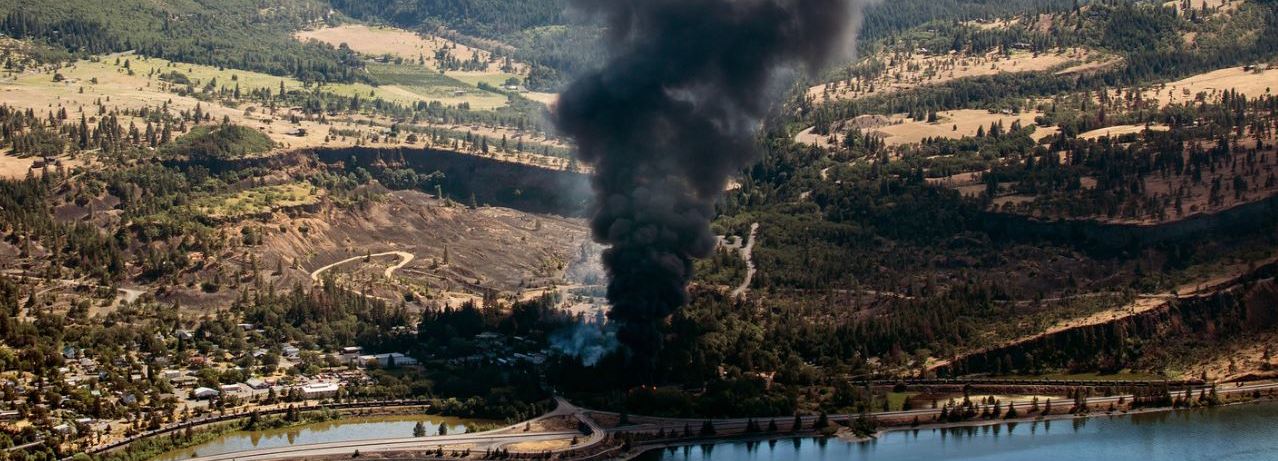On June 3, 2016, our beloved National Scenic Area was devastated by an oil train derailment and fire right in the heart of the Gorge in Mosier, Oregon.
The derailment happened just a few hundred feet from the community's only school, which was in session at the time. Residents of Mosier were evacuated from their homes for up to two days. Interstate 84 was partially closed for the day, causing massive traffic disruptions. The water treatment facility in Mosier was overwhelmed with oil contamination and was inoperable for days, and thousands of gallons of oil spilled into the Columbia River.
The town of Mosier was only saved because it was a rare, windless day in the Gorge and the train wasn't moving very quickly. The next time we may not be able to avert catastrophe. In fact, on Tuesday a oil train derailed and caught fire in Custer, Washington, resulting in the evacuation of the town. It was a grim reminder that oil train emergency response continues to be an issue of importance.
Since 2014, oil train derailments, spills, explosions, and fires across North America have claimed hundreds of lives, required the evacuation of thousands, spilled millions of gallons of oil into waterways, and cost billions of dollars to clean up.
In 2019, Friends of the Columbia Gorge and its allies helped convince the Oregon Legislature to pass HB 2209 to require oil train emergency spill response planning to better prepare for the next oil train disaster. The legislation will go a long way toward making Oregon better prepared for the next derailment and spill.
Now, the Oregon Department of Environmental Quality (DEQ) has proposed new rules to implement the requirements of HB 2209 and the agency wants to hear from you. The proposed rule is a step in the right direction.
You can provide comments up until Tuesday, December 29 at 4:00 p.m. Pacific, urging the DEQ to adopt strong rules that require:
- Oil spill contingency plans on all oil train routes;
- Sufficient planning and resources to clean up large spills of both light and heavy crude oil;
- Railroads and oil companies to bear the costs of oil spill response;
- Proof of financial responsibility by the railroads;
- Air monitoring to protect responders and the public; and
- Protection of fish and wildlife.
The newest oil train derailment and fire in the Pacific Northwest adds to the urgency for Oregon to adopt and implement oil train emergency response rules, and for the region to continue moving beyond fossil fuels in all ways possible.
Thanks for all you do to protect the Columbia River Gorge National Scenic Area!


